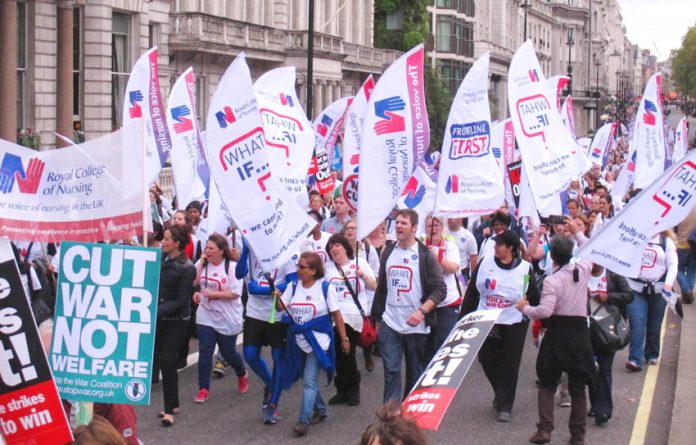
COMMENTING on Tory Health Secretary Hunt’s plans to cap charges for NHS agency staff, Janet Davies, Chief Executive & General Secretary of the RCN said: ‘While capping agency charges may look like firm action from the government, it will not resolve the huge financial deficits trusts are facing because of spiralling patient demand and flat-lining budgets.
‘The NHS is facing a financial crisis and needs an urgent injection of cash.’ Hunt said yesterday that from April next year, NHS trusts will not be able to pay more than 55% more to agencies than it costs to pay a member of staff for a shift.
Figures released last week showed trusts had overspent by £930m in the last three months – with agency spending highlighted as one of the biggest factors. Hunt said: ‘For too long, staffing agencies have been able to rip off the NHS by charging extortionate hourly rates which cost billions of pounds a year and undermine staff working hard to deliver high-quality care.’
However, RCN leader Davies insisted: ‘Successive governments have failed to train or employ enough nurses, and pay restraint is forcing nursing staff to supplement their income through agency work. If they can no longer afford to work for the NHS, they will go elsewhere, the workforce crisis will become even worse and patient care will suffer.
‘Rising agency costs are a symptom of short-term workforce planning. Any action on agency spending must go hand-in-hand with a longer-term strategy to train more nurses and properly value their work. These plans cannot be seen as a cost-cutting exercise as hospitals need these nurses to provide safe patient care. The savings from these plans must be converted into permanent positions for nursing staff to ensure patient care is not compromised.’
The RCN warned earlier this year that changes to immigration rules will risk intensifying the severe shortage of nurses in the UK, compromising patient safety as well as costing the health service millions.
Under the new rules, people from outside the European Economic Area (EEA) must be earning £35,000 or more before they are allowed to stay in the UK after six years. These rules will force many nurses to return to their home countries, leaving health services with nothing to show for the millions of pounds spent on recruiting them. The effects of the new rules will start being felt in 2017.
The RCN has calculated that up to 3,365 nurses currently working in the UK will potentially be affected and estimates that it will have cost the NHS £20.19 million to recruit them, money that will have been wasted if they are forced to leave the UK.